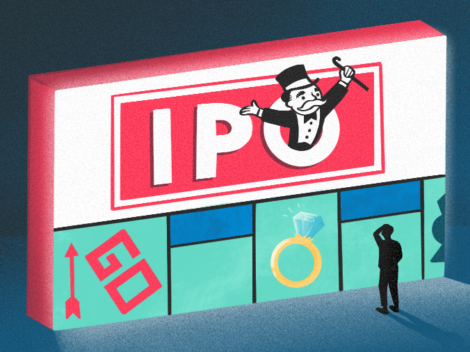European startup investment in the second quarter dropped $14 billion from its peak as venture capital moved downstream.
Funding to European startups across all stages reached $23.7 billion last quarter—down 38% from the peak of $38 billion a year earlier, Crunchbase data shows.
Search less. Close more.
Grow your revenue with all-in-one prospecting solutions powered by the leader in private-company data.
Much of that decline in funding was to late-stage and technology growth stage startups, which fell by $13 billion. Earlier funding stages, while still down year over year, were less dramatically impacted.
Europe expanded
It’s worth keeping in mind that 2022 numbers are coming off record highs.
Despite the year-over-year drop, European startup funding in the most recent quarter was still $10 billion or more higher than each quarter in 2020—even topping that year’s record fourth quarter, when funding totaled $13 billion.
This past quarter also contrasts sharply with Q1 2022, which defied trends, and grew quarter over quarter and year over year.
European startup investment kicked off 2022 by bucking the global VC trend. While global and North American VC investment in Q1 fell quarter over quarter, in Europe, the first quarter actually came in as the continent’s second strongest funding quarter since the beginning of 2021, with the region’s startups raising north of $30 billion.
Assets allocated to venture funds in Europe have grown alongside the influx of U.S. venture firms setting up shop in Europe. The U.K., Germany, France, Sweden and the Netherlands all grew as entrepreneurial ecosystems throughout last year.
Late stage halved YoY
But global growth equity and alternative investors pulled back in Q2 from investing as heavily in European startups—as those investors also did on a global basis.
All told, European startups raised $13.7 billion in late-stage and technology growth fundings—half the amount raised a year ago for the same quarter and down 28% quarter over quarter.
The number of late-stage companies funded declined by a lower proportion, falling 26% QoQ and 23% YoY.
European late-stage deal size averages and medians also shrunk in the second quarter.
The second-quarter peak of 2021 was driven by a significant increase in late-stage funding to some of the most highly funded startups in Europe. Those include companies like Berlin-based stock trading service Trade Republic and Munich-based execution management systems Celonis. Still, we noted at the time that European funding at late stage and technology growth for that quarter was half the size of late-stage funding to North American companies in the second quarter of 2021. While the second quarter of 2021 looked like an anomaly for European startups, it showed the interest global growth equity had begun to take in European startups.
For now, with the public market turmoil, those investors have pulled back significantly—not just in Europe, but globally. However, given the growth in the European ecosystem, when market conditions change we expect those investors will be back.
Early stage holds up
Early-stage funding to European startups in the second quarter of this year fell by 9% year over year, tracking to $7.9 billion. Quarter over quarter, it declined by a higher proportion, around 19%.
Still, round sizes held up in Q2 and were particularly strong at Series A, an indication of the growth in early-stage funds in Europe as well as U.S.-based funds setting up shop in the region.
Seed
European seed funding in the second quarter totaled $2.1 billion, down 19% from a year ago and close to flat quarter over quarter. (Keep in mind, seed funding counts will continue to grow as seed fundings are often added to the Crunchbase database after the quarter closes.)
Pace of new unicorns
The current global funding downturn comes amid a reckoning for private and public company valuations that stands to impact large late-stage startups most directly.
In a dramatic example, Klarna—the most highly valued European unicorn on The Crunchbase Unicorn Board—is reportedly raising funding at a $6.5 billion valuation. The deal would shed close to $40 billion in value from its most recent valuation in June 2021, when it was valued at $45.5 billion in a funding led by the SoftBank Vision Fund. (Affirm, a publicly traded U.S. competitor to Klarna, has seen its valuation slide by a similar margin—86% from its peak in November 2021.)
Still, a total of 21 new companies from Europe joined the Unicorn Board in the second quarter of 2022, bringing the continent’s total to 187 companies. Unicorn counts for European startups is on par with the first quarter, and not too far off from 2021 when between 20 and 26 were minted each quarter.
The most highly valued company to join the board in the second quarter of 2022 was London-based point-of-sale payments company SumUp, which raised $624 million led by Bain Capital Tech Opportunities at a $8.5 billion valuation.
Europe on a new footing
Despite the pullback in late-stage funding, European startup funding has held up at the earlier stages. This is an indication of the strong pipeline of startups from the continent to come.
Crunchbase Pro queries relevant to this article
Further reading
- Q2 VC Funding Globally Falls Significantly As Startup Investors Pull Back
- North American Startup Funding Fell Further In Q2
Methodology
The data contained in this report comes directly from Crunchbase, and is based on reported data. Data reported is as of July 5, 2022.
Note that data lags are most pronounced at the earliest stages of venture activity, with seed funding amounts increasing significantly after the end of a quarter/year.
The most recent quarter/year will increase over time relative to previous quarters. For funding counts, we notice a strong data lag, especially at the seed and early stages, by as much as 30% to 40% a year out.
Please note that all funding values are given in U.S. dollars unless otherwise noted. Crunchbase converts foreign currencies to U.S. dollars at the prevailing spot rate from the date funding rounds, acquisitions, IPOs and other financial events are reported. Even if those events were added to Crunchbase long after the event was announced, foreign currency transactions are converted at the historic spot price.
For M&A transaction analysis, we include venture-backed companies and exclude companies that previously went public.
Glossary of funding terms
Seed and angel consists of seed, pre-seed and angel rounds. Crunchbase also includes venture rounds of unknown series, equity crowdfunding and convertible notes at $3 million (USD or as-converted USD equivalent) or less.
Early-stage consists of Series A and Series B rounds, as well as other round types. Crunchbase includes venture rounds of unknown series, corporate venture and other rounds above $3 million, and those less than or equal to $15 million.
Late-stage consists of Series C, Series D, Series E and later-lettered venture rounds following the “Series [Letter]” naming convention. Also included are venture rounds of unknown series, corporate venture and other rounds above $15 million.
Technology growth is a private equity round raised by a company that has previously raised a “venture” round. (So basically, any round from the previously defined stages.)
Illustration: Dom Guzman

Stay up to date with recent funding rounds, acquisitions, and more with the Crunchbase Daily.







![Illustration of a guy watering plants with a blocked hose - Global [Dom Guzman]](https://news.crunchbase.com/wp-content/uploads/quarterly-global-3-300x168.jpg)
67.1K Followers